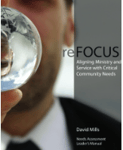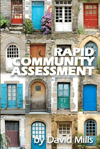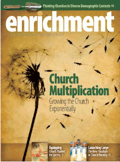About
Co-Creation Labs is the community capacity building arm of Capacity to Serve, Inc. (EIN: 81-4091072) who mission is to develop healthy leaders, organizations and communities based upon a holistic approach to human development that includes social, physical, educational, and spiritual health.
Co-creation is the idea that the greatest value develops through the shared investment of diverse creators.
It means that groups reach outside their organization to invite those who will benefit from what they create in the process. In co-creation, insiders cooperate with outsiders to create something better.
Some of the early leaders in co-creation are exemplified by LEGO Group's collaboration with customers to improve product designs as well as Harley-Davidson's engagement with customers to customize motorcycles. This powerful idea spread as the Internet grew and today it is used in many industries including technology, consumer goods and education.
Applying this idea in communities began with many of the community-based development initiatives, who saw that community ownership of solutions was critical. Our own team launched participation-based research programs beginning in 2003 which flowed from intersection of research and community development.
Our team has extensive experience in the development and implementation of participatory research, community outreach and the processes that bring together co-creation effectively. We have authored manuals on this process, offer both consulting and turn-key resources.
Co-creation goes much deeper than it’s current practice in business and development. As a concept it is tied to the fabric of how communities are formed and how they thrive. Co-Creation labs started out under the name of Compassion by Design in 2007, which speaks to the underlying belief that human flourishing, and community health is part of the creative design for the planet. We also carry with us the experience from Compassion by Design in which we learned that engaging community members directly with the challenges faced by the community causes compassion to rise.
We believe that compassion is an activator for human action.
Co-creation is how communities solve their biggest challenges.
The issues facing your customers, members, and communities are too big to solve alone. No single government, charity or organization can shift the realities that work to undermine the quality of life in so many places. These challenges require that communities and organizations that do business and exist their work together in strategic collaboration. That’s what Co-Creation Labs serves to catalyze.
Co-creation is what humans were built to do.
With the many industries and disciplines that now lean on co-creation as a part of their strategy, we feel it is important to undergird these practical efforts with insights from the discipline of theology which informs our approach to co-creation. The big problems that communities face always have an underlying spiritual problem, too. We believe that the foundational principles of our planet and human existence put humans in the role of co-creation with the original creator who provided the raw materials and inherent order that set the stage for our work and inventiveness.
It is our view that humans are not merely passive recipients of creation but active participants who are called to cooperate in caring for and cultivating the earth. Humans are not mere spectators but active agents in the ongoing process of creation, redemption, and spiritual growth. In communities where this is true, humans flourish.
Co-creation recognizes shared ownership.
Co-creation in community development emphasizes the importance of collaboration, inclusivity, and shared ownership in creating positive social change and building resilient, thriving communities.
We’re a project of Capacity to Serve, Inc. a 501c3 Nonprofit based in Virginia.
Government Can't Keep Up
Some problems are beyond the reach of government. The range of community challenges today require that every asset be mobilized, but community-based resources can be unfocused and hard to engage.
Awareness Doesn't Always Lead to Action
Large portions of your community are entirely unengaged in solving the most pressing problems, and inspiring them to step up is difficult.
The Right People Have to Own the Solution
Empowering those closest to the need to solve problems and activate change is slow and complex work.
|
|
|
|
EVERYTHING YOU NEED FOR THE RIGHT KIND OF COMMUNITY NEEDS ASSESSMENT
A CRITICAL PART YOUR NONPROFIT GROWTH STRATEGY
STRATEGY
Add a participation-based community needs assessment to your annual strategy to increase both impact and support.
FULLY TURN-KEY
All the tools you need to run an effective participation-based community needs assessment.
AUTHORITY
Become the go-to authority for your cause because you own the insights that guide community investments and support
COACHING SUPPORT
Get the insight from experienced NPO leaders about how to tailor participation-based needs assessment for your community or cause.
ACTIVATION
Activate volunteers and donors by engaging them with a more personal connection to the cause.
PRACTICAL TOOLS
Learn to take the insights you glean and promote your cause in a brand new way.
YOUR STEPS TO LAUNCH YOUR ASSESSMENT
|
1. GET THE KIT
|
|
2. STRATEGY COACHING
|
|
3. BUILD MOMENTUM
|
CORPORATE VOLUNTEERS
Convert corporate volunteers to long-term donors and champions.
OUR HUMAN-TO-HUMAN APPROACH
Our approach to nonprofit growth is centered around one truth: relationships are the currency of movement. You'll walk away with clarity, credibility, and publishable community insights. But even better, you'll have new momentum as your volunteers create meaningful connections with decision makers and under-resourced individuals across your region.
%20(1).png?width=200&height=200&name=Untitled-3%20(6)%20(1).png)
Mobilize Volunteers
At its core, a community needs assessment is more than gathering facts and reporting numbers, it's about creating relationships and engaging volunteers as they lead by listening.
.png?width=200&height=200&name=Untitled-4%20(1).png)
Become the Leader
After becoming the leader on listening to the community, organizations and authorities from every corner of your region will line up for a copy of your findings.
.png?width=200&height=200&name=Untitled-5%20(1).png)
Find a Growth Path
Gain a clear view of your community's needs along with the momentum to gather funders and volunteers around your credible solutions.
For over two decades, David Mills has been authoring books and leading teams to engage their communities in a new way.



The average church member lost 37% of their network of relationships during COVID and only replaced 17%.
75% of those surveyed said they thought religion was losing its influence on American life.
REF:
https://donorbox.org/nonprofit-blog/church-statistics
https://www.barna.com/research/current-perceptions/
Volunteering continues to drop, with 40% of church membership volunteering in early 2020 and only 20% volunteering by March 2022. This rate is expected to decrease in 2023.
When polling non-churchgoing Gen Z, 77% are interested in churches that help the poor.
Features + Collaborations:




%20(1)-1.png?width=517&height=394&name=Untitled-3%20(6)%20(1)-1.png)
-1.png?width=517&height=394&name=Untitled-4%20(1)-1.png)